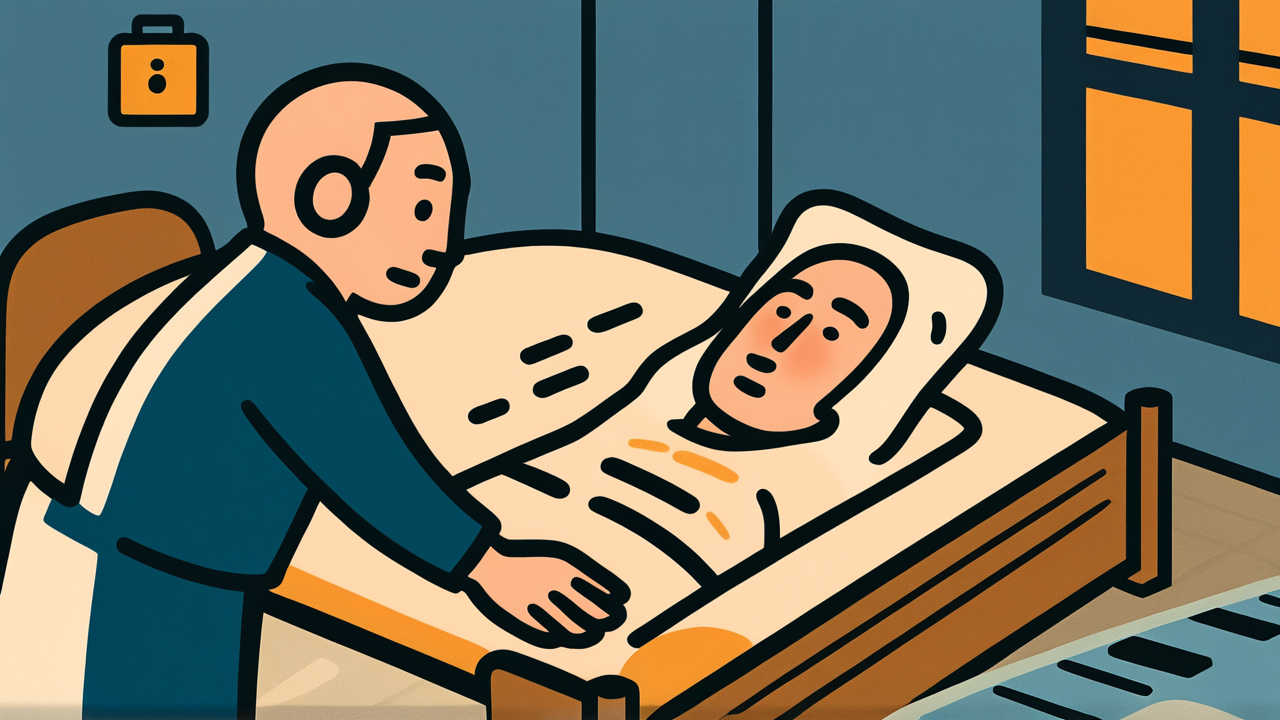How to Read “病に主なし”
yamai ni shu nashi
Meaning of “病に主なし”
“Disease has no master” means that illness has no ruler or master – in other words, no one can completely control disease.
This proverb expresses that no matter how high one’s position, how much wealth they possess, or how much power they wield, everyone is equal before illness, and no one can manipulate disease at will. It shows the reality that whether one is a doctor or a patient, it is impossible to completely dominate disease itself.
It is used in situations where one should maintain a humble attitude toward illness, or when recognizing the limitations of medicine. It is also used in contexts that speak to human equality when those in power fall ill. In modern times, this expression continues to be used with the understanding that even as medical technology advances, the fundamental uncertainty and unpredictability of disease remains unchanged.
Origin and Etymology
The origin of “Disease has no master” is thought to trace back to ancient Chinese medical philosophy. This phrase was born from the observation that disease does not choose its victims and befalls everyone equally, regardless of social status or position.
In ancient China, the reality that everyone from emperors to commoners was powerless before illness, no matter how much power or wealth they possessed, was recorded in medical texts and philosophical works. Chinese medical philosophy was transmitted to Japan along with Buddhism, and the concept that “illness knows no social distinction” is said to have taken root around the Heian period.
The word “master” here is used to mean “lord” or “ruler,” expressing that disease has no ruler – meaning no person exists who can control illness. Similar expressions can be found in medical texts from the Edo period, where they were also used as teachings that doctors should maintain a humble attitude toward their patients.
This proverb contains deep philosophical meaning that speaks not only to the equality of disease, but also to human limitations and the need for humility before the forces of nature.
Usage Examples
- Even the most skilled physician cannot promise a complete cure, for Disease has no master
- Before Disease has no master, even those in power are merely individual patients
Modern Interpretation
In modern society, “Disease has no master” has taken on new meaning alongside advances in medical technology. Even as previously impossible treatments like AI diagnosis, gene therapy, and regenerative medicine are being developed one after another, the essence of this proverb remains unchanged.
Rather, precisely because we live in an era when the advancement of medicine tends to create excessive expectations among patients and families that “medicine should be able to cure anything,” the importance of these words has increased. The COVID-19 pandemic was an event that demonstrated “Disease has no master” on a global scale. No matter how advanced their medical systems, countries around the world struggled equally against the virus, finding complete control difficult.
Moreover, the concept of “disease” has expanded in modern times. When we consider mental illness, lifestyle diseases, and even the “pathology” of society as a whole, this proverb can be applied broadly from personal health management to organizational management. Corporate scandals and social problems are also not things that any single person in charge can completely control, but rather emerge as results of complex intertwining factors.
In our information society, health information overflows and awareness of self-management has increased, yet the fundamental uncertainty of disease remains unchanged. Accepting this reality has become important wisdom for modern people.
When AI Hears This
The attitude of Edo period people who resigned themselves to illness as “fate” bears a striking resemblance to how modern people drown in information.
The average smartphone user spends over 7 hours per day on their device, with many people unconsciously consuming information, saying “I found myself scrolling through social media without realizing it.” This follows exactly the same structure as Edo period people being “at the mercy” of disease.
What’s fascinating is how the symptoms of information sickness closely mirror physical illness. For example, “comparison fatigue” – feeling depressed after comparing oneself to others on social media – strikes regularly like a recurring fever. “Information confusion” from being swayed by fake news dulls judgment like a headache.
However, there’s a crucial difference. While physical diseases invade from outside, information sickness allows us to control our own “intake.” In other words, we modern people have far better conditions to become “masters of our ailments” than people in the Edo period ever did.
Small choices like “reducing daily smartphone use by 30 minutes” or “not checking news first thing in the morning” become medicine for information sickness. The “disease prevention” that was impossible in the Edo period is now something we can do as a matter of course.
This proverb can be said to have taken on a more proactive meaning in modern times.
Lessons for Today
“Disease has no master” teaches modern people about the dangers of seeking too much perfect control. We tend to record our steps with health management apps, calculate nutritional balance, undergo regular checkups, and act as if we can completely prevent illness.
However, this proverb gently reminds us of the importance of accepting that there are aspects we cannot control, no matter how hard we try. This is not resignation, but rather wisdom for living life more richly.
By accepting uncertainty, we can come to value this present moment more. We won’t lose sight of current happiness in our pursuit of perfect health. Also, when we do become ill, we can focus on treatment without blaming ourselves excessively.
Furthermore, this teaching also nurtures compassion for others. Knowing that everyone is equal before illness naturally gives rise to feelings of empathy and support for those suffering from disease. Perhaps what modern society needs is this kind of humility and compassionate heart.



Comments